In the wake of building pressure from across the Pacific and around the world for a Pacific Islands Forum Fact Finding Mission to investigate human rights in West Papua, the Indonesian government has recently been claiming it is investigating it’s own human rights abuses in West Papua.
Why is the Indonesian government refusing to allow the Pacific Islands Forum Fact Finding Mission access to West Papua?
It has been widely documented by the United Nations, human rights organisations and countless others that there have been terrible human rights violations committed in West Papua ever since the Indonesian government illegally took control of the country in 1969 through the fraudulent Act of NO Choice. If the Indonesian government wants to play a constructive role in engaging with Pacific Island countries, why are they publicly refusing to cooperate with the Pacific Islands Forum by refusing access to the Human Rights Fact Finding Mission?
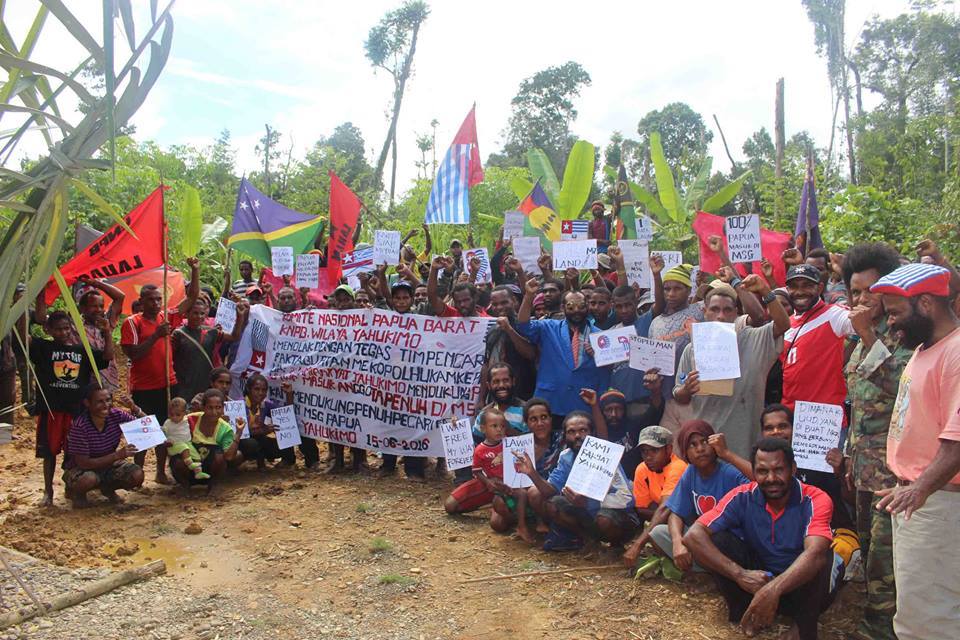
Such a Pacific Islands Forum Fact Finding Mission is clearly in the interests of people of West Papua, in fact West Papuan people in their thousands have been rallying on the streets to show their support for the Fact Finding Mission’s access to West Papua and to reject the Indonesian government’s fraudulent human rights investigation. What is the Indonesian government hiding from the Pacific Islands Forum Fact Finding Mission?
What sort of investigation is the Indonesian government really doing in West Papua?
According to the Indonesian government, they claim their human rights investigation team is made up of members of the Indonesian military and the police themselves. It is reportedly being set up by Indonesian Security Minister Luhut Panjaitan who earlier this year notoriously told West Papuans to “leave Indonesia” and two weeks ago was greeted with mass rallies of thousands of West Papuans refusing his arrival to West Papua.
What sort of transparent human rights investigation has the perpetrators of the human rights violations as the investigators?
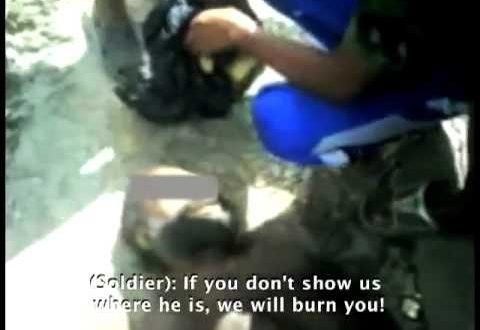
When Indonesia was under Dutch colonial rule in the 1940s, would Indonesia trust the Dutch military to investigate their own human rights abuses in Indonesia?
Of course not. So why should we West Papuans under Indonesian colonial rule trust the Indonesian military to investigate their own human rights abuses in West Papua?
Similarly, the people of East Timor (Timor-Leste) did not achieve peace through an Indonesian human rights investigation, East Timor achieved peace through United Nations intervention allowing an Internationally Supervised Vote on self-determination. We, the people of occupied West Papua deserve nothing less.
Even Indonesia’s own National Commission on Human Rights (Komnas Ham) has publicly rejected the Indonesian government’s claims of conducting a human rights investigation. Speaking on 18th June, the Commissioner of Komnas Ham, Natalius Pigai rejected the investigation and said “Komnas HAM cannot be part of the actors, part of the group of alleged perpetrators in a team formed by Mr. Luhut, it’s composed of the military commander, the regional police chief, the government figures.” This so called investigation also comes at the same time as the appointment of the new Head of the Indonesian Police, General Tito Kanavian who is not only implicated in grievous human rights violations in West Papua but last year also infamously claimed that “police have the authority to violate human rights while on duty.” Clearly this man is not fit to oversee an investigation of human rights abuses in West Papua, especially human rights abuses he himself is alleged to have been involved in.
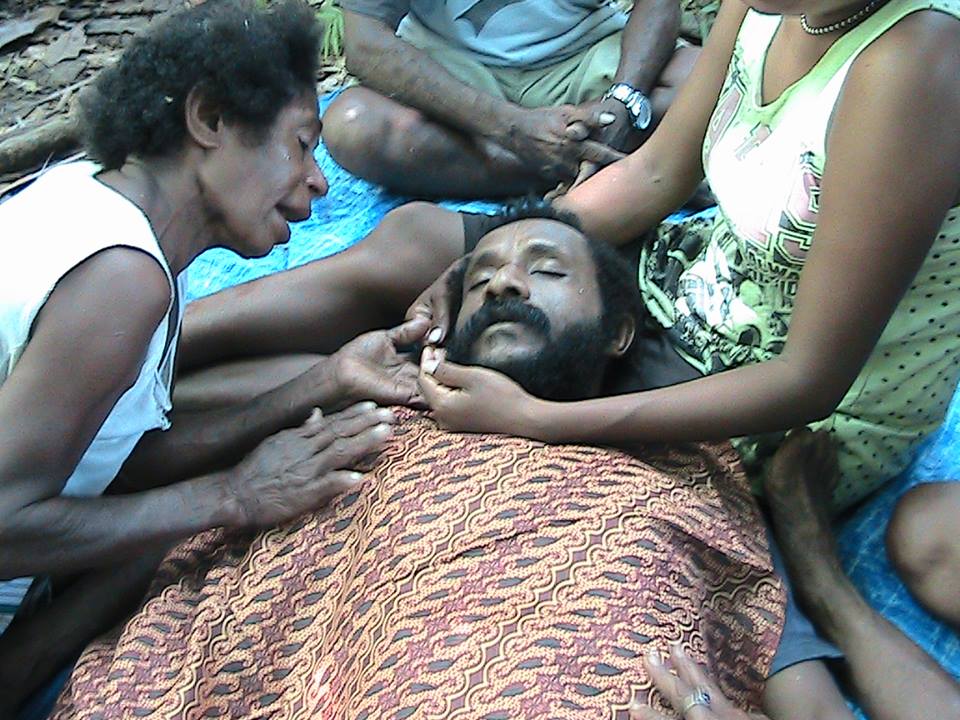
The Indonesian government’s claims are ridiculous. Human rights in West Papua should be investigated by the Pacific Islands Forum and the United Nations Human Rights Council. However, this seems to be the last place the Indonesian government is willing to address human rights violations in West Papua. Only last week the government of the Solomon Islands and the government of Vanuatu expressed their deepest concerns at the deteriorating human rights situation in West Papua. Showing strong Melanesian solidarity with the people of West Papua and our fundamental right to self-determination through an Internationally Supervised Vote, the Solomon Islands and Vanuatu governments called upon the Indonesian government to allow the Pacific Islands Forum Human Rights Fact Finding Mission full access to West Papua.
But rather than welcoming the concerns about human rights in West Papua, the Indonesian government representative reacted with anger, stating,
“We deplore the way Solomon Islands and Vanuatu have abused this Council and the universal principles of the promotion and protection of human rights by supporting the cause of separatism”.The government representative then pointed the finger at the Solomon Islands and Vanuatu, saying
“It needs to be underscored here that Solomon Islands and Vanuatu are far from being perfect in their implementation and protection of human rights”.
Such blaming and finger pointing by the Indonesian government is clearly an attempt to try and shift the gaze of the International Community and legitimise the Indonesian government’s terrible human rights record in West Papua.
Why does the Indonesian government seem to always react with anger or coercion towards anyone who tries to raise human rights concerns about West Papua?
Also at the United Nations Human Rights Council, the UN Special Rapporteur on the right to freedom of peaceful assembly and association, Maina Kiai spoke of the domination of a particular culture, language and tradition which are claimed as being superior to others and included West Papua on his list of areas in the world where such dehumanization is taking place. He said “In each case, the superiority has triggered the process of dehumanization or delegitimizing of particular groups,” and
“Gradually, these groups would lose their humanity and rights. This process can lead to devastating consequences, because history has proved it many times.”
Yet once again, the Indonesian government refused any mention of human rights in West Papua and also attacked the United Nations Special Rapporteur on the right to freedom of peaceful assembly and association, saying
“It seems that the Special Rapporteur does not have enough knowledge and comprehensive understanding on the country he cited in the report.”
For the people of West Papua, it seems that the Indonesian government does not have enough knowledge and comprehensive understanding on human rights in West Papua and is determined not to let the United Nations find out the real situation.
Why is the Indonesian government criticizing the United Nations over discussing human rights violations in West Papua?
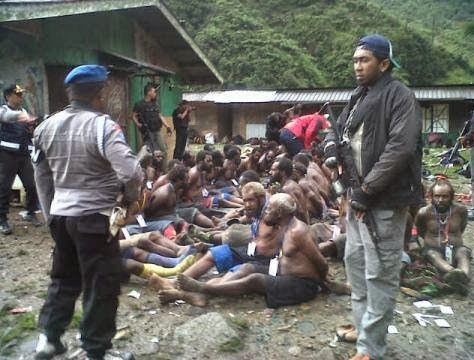
Access to United Nations Human Rights observers has now been closed to West Papua for the past 9 years and in 2013, the UN Special Rapporteur on the promotion and protection of the right to freedom of opinion and expression, Frank La Rue, was also denied access to West Papua. A growing worldwide petition with more than 100,000 signatures is currently actively calling for UN Human Rights Observers to be allowed into West Papua to freely do their job.
What reason could the Indonesian government possibly have for refusing United Nations Human Rights Observers access to West Papua?
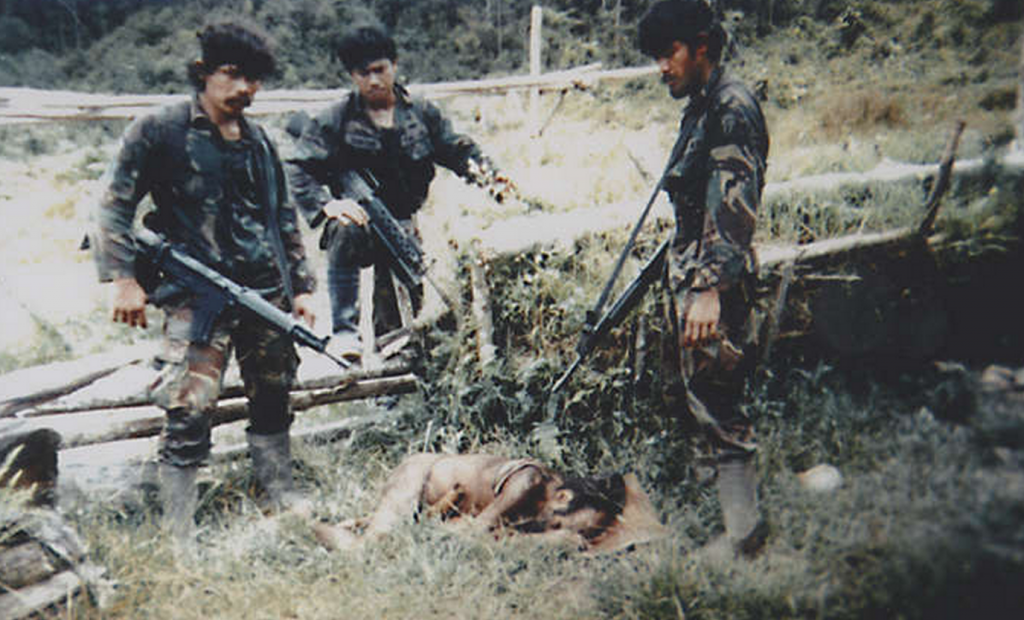
Perhaps the most ridiculous and fraudulent of all the Indonesian government’s claims of investigating human rights in West Papua is the amount of human rights abuses they allege to have actually been committed. According to Indonesian Security Minister Luhut Panjaitan the Indonesian government is investigating only three human rights abuses alleged to have been committed since 1963. Three.
For a start it is estimated that over 500,000 indigenous West Papuans (almost 1 in 3 West Papuan people) have been killed ever since Indonesia took control of West Papua. Secondly, this horrific figure does not include the countless other human rights abuses we West Papuans endure every day from unlawful arrests, to rape and torture, systematically committed as acts of this slow motion genocide. There is mounting evidence of the extent of human rights abuses committed in occupied West Papua on a daily basis. In fact in 2013, the Asian Human Rights Commission found that over 4000 West Papuan people were killed by the Indonesian military in just one year (between 1977 and 1978) in the central highlands region of West Papua alone; not to mention the countless other human rights violations they documented including mutilation, disembowelment and rape. In a public report to the United Nations Human Rights Commission in 1999, the Special Rapporteur on Violence Against Women concluded that the Indonesian security forces used rape “as an instrument of torture and intimidation” in West Papua, and “torture of women detained by the Indonesian security forces was widespread”.
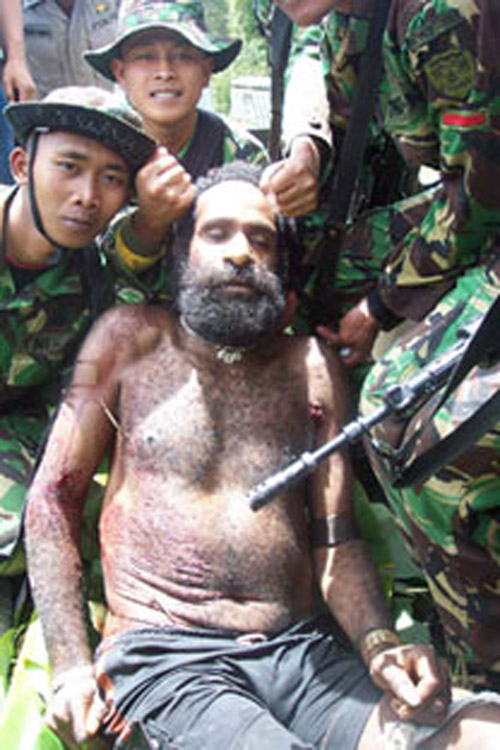
The Indonesian government should carefully read the real history of occupied West Papua, the history they have tried so hard to erase from the West Papuan people and from the world. Yale University,Amnesty International, The Asian Human Rights Commission, The International Coalition for Papua,Human Rights Watch, Sydney University, the International Association of Genocide Scholars, Warwick University and many others have all published detailed reports documenting the evidence of human rights atrocities and genocide in West Papua. In fact in 2008, Juan Mendez the United Nations special advisor on the prevention on genocide and special rapporteur on torture, wrote to the UN Secretary General Ban Ki-Moon, expressing his “deep and growing concern regarding rising reports of human rights violations in West Papua”, and classified “West Papua as being among those countries whose populations were ‘at risk of extinction’ ”
Overall there is overwhelming evidence that genocide is being committed in West Papua.
To us the people of West Papua, the idea that there are only three human rights abuses that need investigating is not only ridiculous but extremely offensive and painful.
Are we West Papuans, and is the world seriously expected to believe that after more than 50 years of Indonesian occupation and genocide, there have only been three human rights abuses committed in West Papua?
There are literally hundreds of thousands of human rights abuses that have been committed and are still being committed by the Indonesian authorities in occupied West Papua. We West Papuans could never trust Indonesia to investigate the very human rights abuses they are committing against us. Again, how can human rights abuses be investigated by the human rights abusers, especially when they are still committing the abuses?
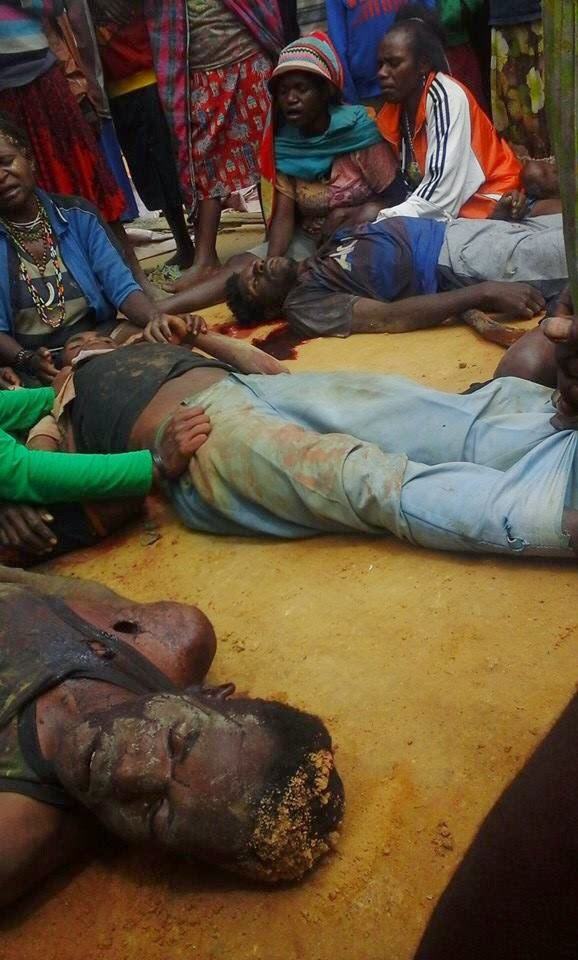
West Papua is a truly tragic story. The Indonesian government has and continues to systematically deprive us of our human rights, our land, our history and our culture. After 50 years of such oppression and enduring an effective ongoing ban on foreign journalists, my people are a forgotten people; kept in the dark, unseen, unheard and ignored. Every day we suffer and die and every day we hope and pray that one day the world will hear us and our cries for freedom. We cannot let this brutal and inhumane injustice continue. Why has West Papua and the West Papuan people’s fundamental right to self-determination been ignored for so long?
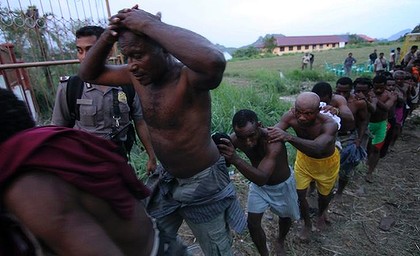
The Indonesian government has shown their true colours with their claims of using human rights abusing soldiers to investigate their own human rights abuses.
My people are appealing to the world to see that this so called human rights investigation is yet another false promise based on fraud and lies. We call for the mandated human rights Fact Finding Mission from the Pacific Islands Forum and further investigation from the United Nations, not from the colonial occupying Indonesian military.
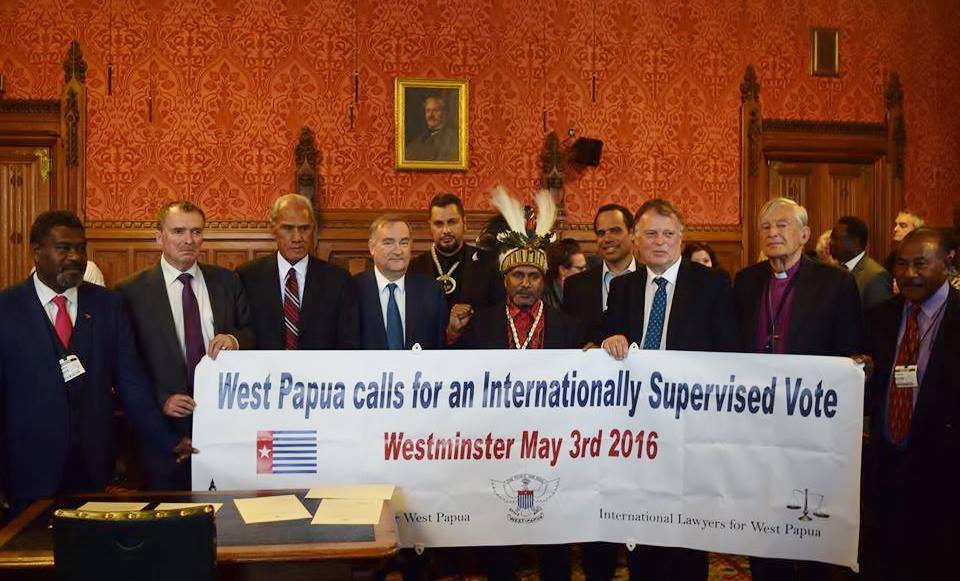
Ultimately, the root cause of all these human rights violations (The 1969 Act of NO Choice) must be addressed. The only solution for a free and peaceful West Papua in which human rights can be reconciled is with an Internationally Supervised Vote on West Papuan self-determination. For us to peacefully determine our own future and live freely in our own land, we the people of West Papua must have our fundamental right to self-determination fulfilled at last.
Benny Wenda
West Papuan Independence Leader
Spokesperson for the United Liberation Movement for West Papua (ULMWP).

